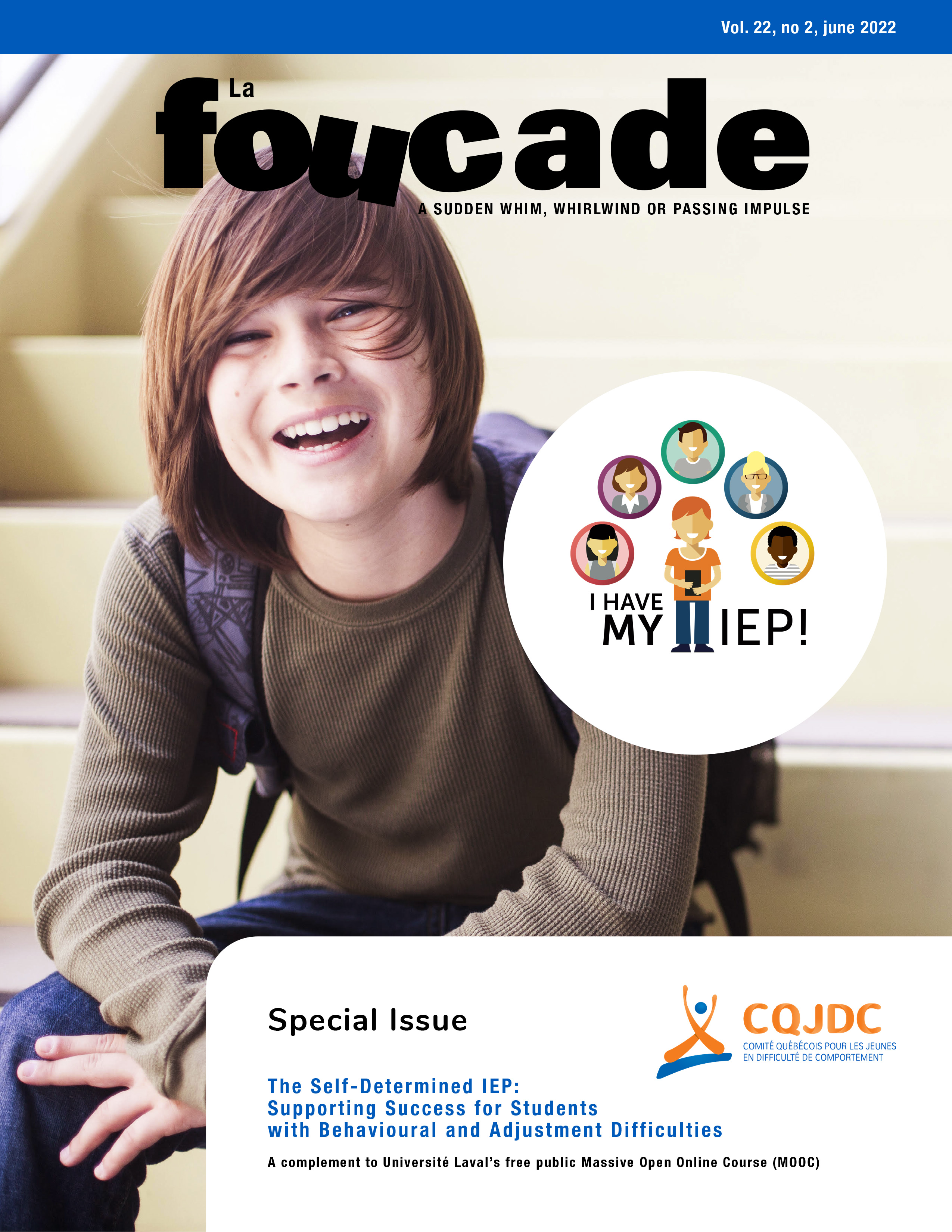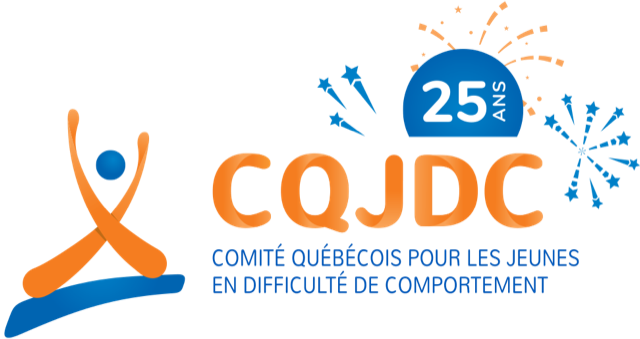The Self-Determined IEP: Supporting Success for Students with Behavioural Difficulties and Social Maladjustments
This MOOC addresses the establishment of self-determined individualized education plans (IEP) plans by students with socio-emotional and behavioral difficulties at school. It proposes an approach that encourages the involvement of all the stakeholders concerned by its implementation. Throughout the course, participants will have the opportunity to familiarize themselves with the tools of the "I Have MY IEP" toolkit, specially developed for this purpose.
This course is aimed at teachers, professionals, school principals and support staff in primary and secondary schools. For participants who wish to do so, this MOOC offers them the opportunity to draw up an IEP, while taking ownership of the proposed approach as they go through the various phases of the process.
Registration until April 30, 2026
Training plan
Module 1 - The IEP : Definition and Implementation Framework
- Introduction to the “I Have MY IEP!” Toolkit.
- Legal and reference frameworks associated with the implementation of IEP.
- The roles and responsibilities of the IEP stakeholders.
- Actions to take in the process of establishing an IEP.
- Collaboration and communication strategies with the parents and other stakeholders.
Module 2 - The Implementation of self-determined IEPs
- Theoritical foundations of self-determination.
- Self-determination development components and targets.
- Implementation of self-determined IEPs by students.
Module 3 - Formal Review Phase
- Factors influencing student behavior at school.
- Evaluating the relevance of establishing an IEP.
Module 4 - Consulting and Needs Assessment Phase
- Resources likely to contribute to the implementation of IEPs.
- Elements of reflection associated with an ecosystemic analysis.
- Assessments of student learning.
- Tools for observing and recording student behavior.
- Psychosocial assessment approach.
- Level of student self-determination.
- Means and strategies to support student learning.
Module 5 - Consensus Phase
- Preparing for a consultation meeting.
- Factors associated with a consultation meeting conducive to the involvement of all players.
- Facilitating a consensus-building meeting based on students' level of self-determination.
- Draft SMART objectives adapted to students' needs.
Module 6 - Implementation Phase
- Regular monitoring of student behavior.
- Communication of student learning progress to other IEP stakeholders.
- Adjust IEP objectives and resources according to student learning progress.
Didactic Material
Registered participants receive a free copy of the special IEP issue of the digital magazine "La foucade" published by the Comité québécois pour les jeunes en difficulté de comportement (CQJDC).
Team
Nancy Gaudreau, Ph. D.
Nancy Gaudreau holds a doctorate in psychopedagogy and is a full professor in the Department of Teaching and Learning Studies in the Faculty of Education at Université Laval. She heads the Unité Mixte de Recherche Synergia - Adaptation, bien-être et réussite éducative at Université Laval, whose mission is to promote the well-being of students with adjustment and behavioural difficulties at school and the people who support them in their educational success. Her research interests focus on the training and coaching of educational staff, the development of their self-efficacy and their intervention practices towards students with behavioural difficulties.
She also has more than 15 years' experience in the school environment as a teacher and special education consultant, specializing in behavioural problems at school.
Marie-Pier Duchaine, M. A.
Marie-Pier Duchaine holds a bachelor's degree in preschool and elementary education and a master's degree in psychopedagogy. She is a doctoral student in psychopedagogy at Université Laval, under the supervision of Nancy Gaudreau. She coordinates Université Laval's Unité Mixte de Recherche Synergia - Adaptation, bien-être et réussite éducative, whose mission is to promote the well-being of students with adjustment difficulties at school, and of the people who work with them to support their success. Her research interests focus on the continuous professional development of teaching staff and their self-efficacy in dealing with students with behavioural difficulties. Her current work revolves around assessing the potential of a Massive Online Open Course (MOOC) to support the professional development of teachers.
For more information
Email: mooc.info@ulaval.ca
Phone number: 418 656-2131, poste 403234



